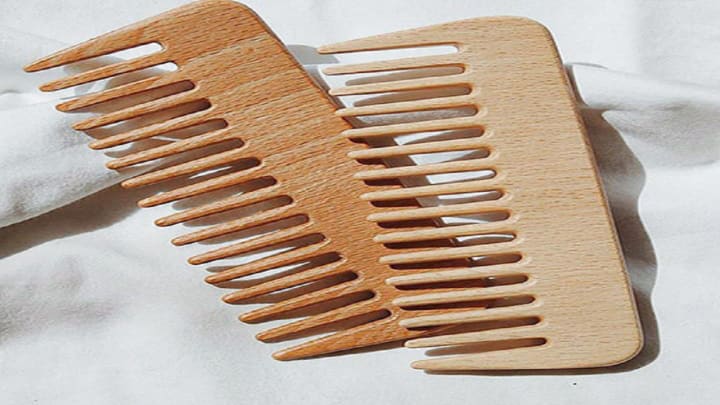6 easy ways to prevent hair loss
hair treatment

Hair loss is a normal and natural process that occurs during the growing cycle of the hair. It is considered normal to lose around 100 hairs every day. As a result, worrying about hair loss is completely unnecessary. However, if you find that strands of hair are clogging the shower drain or that a considerable amount is left on the comb, you should pay attention. Of course, professional assistance will be required, but don't be too quick to raise the alarm. You may prevent or decrease excessive hair loss on your own by following a few basic guidelines and following some easy recommendations.
Trichologist Dominique Berg, Chief Scientist of Évolis Professional, says that hair has five to seven-year growth cycles. They then rest for a time before falling out. Obviously, not every hair strand is at the same stage of the cycle; otherwise, everyone would grow bald every few years.
The follicles do not go through the cycle in the same order. This means that each of them goes through one or more stages of development at some point. As a result, around 100 hairs each day enter the hair loss phase. This may appear to be a lot, but when compared to the number of follicles on the head, which ranges from 100,000 to 150,000, you can see that you only lose about 0.001% of your hair daily, and each of them is replaced with a new hair shaft.
Causes of Hair Loss
Hair loss can be caused by a variety of factors. One of them is genetics, which is exceedingly tough to combat. Many women, however, experience hair loss as a result of stress or a shortage of minerals in their bodies, such as vitamins B, D, and zinc.
Hormonal shifts are another major reason of excessive hair loss, particularly in women. This can occur during pregnancy, delivery, changing birth control medications, or menopause. Changes in hormones can alter hair development in such a manner that a portion of the hair growth cycle shortens, resulting in greater hair loss.
According to trichologist and colorist Bridget Hill, you should be concerned if you notice that you leave your hair in the car, on a pillow, or in your hands, that you run your fingers over your head, that you find a lot of hair in the drain after washing your hair, that the density of your hair has decreased, and that your tail has become noticeably thinner than three months ago.
However, there is no need to worry; Berg claims that this is a fixable problem.
This is known as telogen alopecia, which essentially means that a clump of hairs stopped growing at the same time and subsequently fell out at the same time.
How to prevent hair loss
If hair loss is not the result of a medical condition or hormonal imbalance, there are several ways you can help prevent it .
1. Consume a well-balanced diet
Dominique Berg suggests include as many vegetables, lean meats, seafood, and foods high in healthy fats as possible in your diet, such as avocados, eggs, and nuts.
Spinach (heavy in iron, which helps carry red blood cells to the scalp, promoting hair development), oranges, tomatoes, and peppers (foods high in vitamin C encourage collagen formation, which maintains hair follicles healthy), flax or chia seeds are abundant in essential hair nutrients (they are high in omega-3 fatty acids that help keep hair healthy and strong, and promote new growth).
2.Avoid "tight" hairstyles and chemical treatments
If your hair falls out, then, alas, you will have to forget about the ponytail for a while. It is also not recommended to get involved in chemical treatments: curling, coloring and procedures like keratin straightening. All this can injure the follicles and lead to increased hair loss.
3.Don't neglect sleep

Sleep is critical to our health, so you shouldn't sacrifice it for anything else. Otherwise, sooner or later it will affect your health. To restore the body, it is recommended to sleep 7-8 hours a day. A hormone that helps regulate the sleep cycle, melatonin, has been shown to also promote hair growth, including when we get it naturally when we sleep.
In addition to being vital for hair growth, rest can also help keep hair from getting too oily. When you skip sleep, your stress levels can rise, leading not only to a decrease in the rate of hair growth, but also to an increase in sebum production.
4.Use omega-3 fatty acids
One might debate if it is worthwhile to take particular vitamins for hair for a long period. Some are certain that they have no impact, while others are certain that after using them, their hair, skin, and nails improve significantly. But it's their high consumption of omega-3 fatty acids that truly helps their condition, since they can assist stimulate hair development. They can be obtained not just through supplements, but also through normal goods. The majority of omega-3 fatty acids may be found in mackerel, salmon, herring, flax and chia seeds, walnuts, and beans.
5.Massage your hairline
Many massage parlours provide scalp massages. However, if you don't want to spend money on it, you may massage yourself. However, it is necessary to first comprehend the technique. A proper massage entails more than merely stroking your head with your fingertips. It will not have any effect. On the Internet, you may watch video tutorials.
6.Select the appropriate comb

Don't be shocked if the improper comb affects the condition, health, and growth of your hair. A wooden comb is the finest alternative. It is preferable if there are a number of them. It is simple to comb the hair with a comb with unusual teeth, and with a classic brush it is also convenient to massage the scalp.
When should you seek expert assistance?
If none of these suggestions work for you, or if you believe your hair loss is severe, you should consult a doctor; the cause might be far more serious than ordinary stress. Telogenous alopecia can be caused by thyroid gland problems like as hypothyroidism or hyperthyroidism.
Your doctor can assist you in diagnosing and planning a therapy by reviewing your hair loss history, evaluating your scalp and hair loss patterns, and doing a pull test, which is a method used to determine whether or not hair loss is active. A scalp biopsy may be necessary in rare instances. The most important thing is to discover the root cause and then deal with its abolition. In any case, in no case should you prescribe your own medicines and self-medicate!
About the Creator
Sahina Bano
Freelance Blogger and Content Writer. I owe a website and write for my clients.






Comments
There are no comments for this story
Be the first to respond and start the conversation.